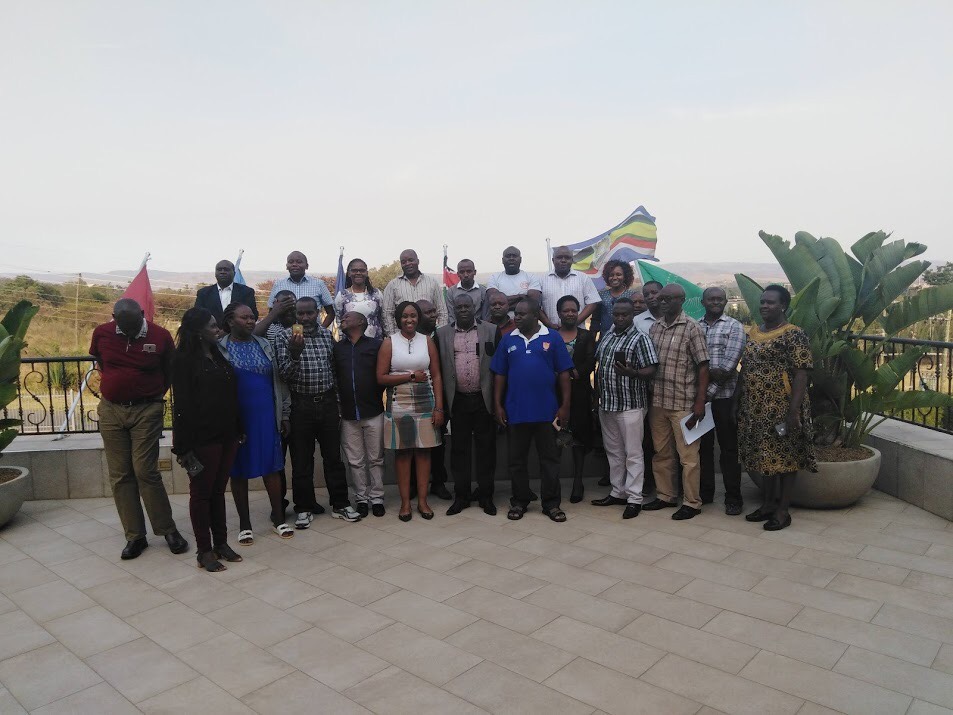OCDS for Accountability in Makueni County
With partners Hivos East Africa and the Government of Makueni County (GMC), Development Gateway (DG) is pleased to be driving towards developing an approach to sustainable procurement processes in Makeuni, using the Open Contracting Data Standard (OCDS). Over the past months, we have provided support to the GMC in recording and publishing its procurement data.
The GMC is keen on developing a system to track and monitor key steps of its procurement process.
To date, these processes have been largely paper-based. This labor-intensive, paper-based system has historically resulted in documents being mismanaged or misplaced, and has made it challenging to run any data analysis or identify possible corruption within the procurement system.
The Governor of Makueni County, Professor Kivutha Kibwana, is spearheading the project. He aims to ensure that a sustainable solution to hold government procurement processes accountable is established. Additionally, working at the county level allows us granularity and the ability to track local government goals – such as measuring whether procurements are reaching target groups, which include youth, women, people with disabilities, and citizen/local contractors.
To meet the GMC’s specific needs, DG has begun developing a technology system that allows for government staff to directly enter data, upload approved documents, and complete data validation to support high quality data entry. The system will also include tracking tools to allow users to monitor the status of each project’s procurement process.
Additionally, DG will be working with the GMC, the private sector, CSOs, and journalists to identify key data metrics that will be useful for each target user group. In doing so, we will prioritize what information should be included in a public dashboard, to help make the procurement process more transparent and accountable. The system will provide an output in OCDS format to make the data available to other systems and users as well.

DG’s Charlene Migwe and the Directors of the Government of Makueni County
This ongoing collaboration between DG and GMC is supported by the William & Flora Hewlett Foundation and Hivos. GMC has also committed its own funds to support sensitization of key stakeholders to the project.
We look forward to continuing the design and development of the system, and to supporting GMC and the entire Makueni County community. Through working towards sustainable procurement processes, we hope to not only reform and open these processes, but to deliver better quality goods and services to citizens.
Share This Post
Related from our library

Economic Toll of Tobacco-Related Diseases in Kenya: New Research Findings
Development Gateway: An IREX Venture (DG) is pleased to announce the publication of a research manuscript on the Economic Costs of Tobacco-Related Illnesses in Kenya. This research was carried out as part of the Tobacco Control Data Initiative (TCDI) activities in Kenya and is part of a broader report on Morbidity and Mortality from Tobacco Use in Kenya.

Building a Sustainable Cashew Sector in West Africa Through Data and Collaboration
Cashew-IN project came to an end in August 2024 after four years of working with government agencies, producers, traders, processors, and development partners in the five implementing countries to co-create an online tool aimed to inform, support, promote, and strengthen Africa’s cashew industry. This blog outlines some of the key project highlights, including some of the challenges we faced, lessons learned, success stories, and identified opportunities for a more competitive cashew sector in West Africa.

Unlocking Africa’s Agricultural Potential: Introducing the Soil Nutrient Roadmap
For over a decade, Development Gateway: An IREX Venture (DG) has been at the forefront of digital agriculture, leveraging agricultural data to support input monitoring, value chain analysis, and farmer-centric governance models. With funding from the Gates Foundation, DG is launching the Soil Nutrient Roadmap (SNR), a cutting-edge initiative using geospatial data to estimate current and future soil and crop nutrient requirements.